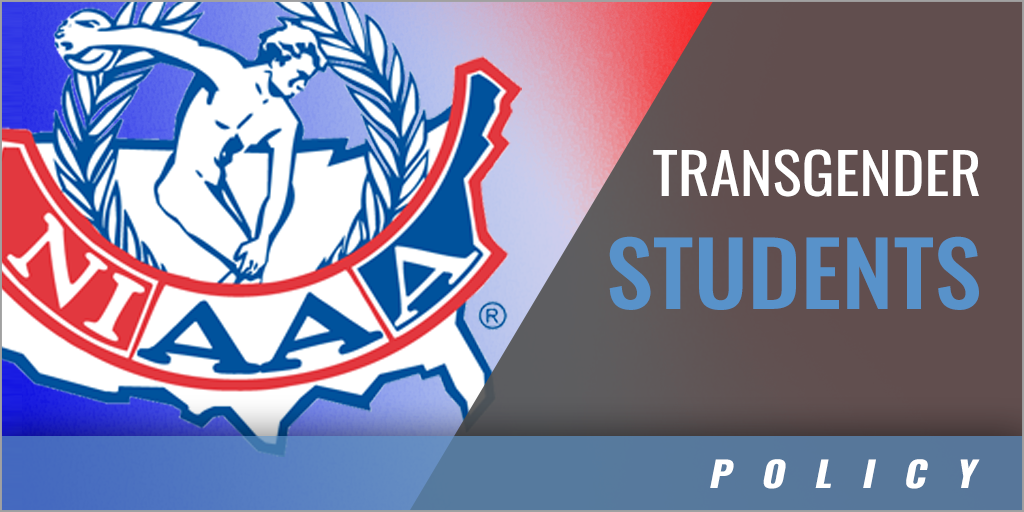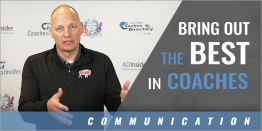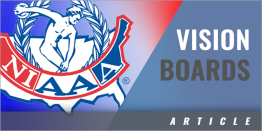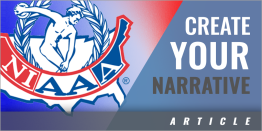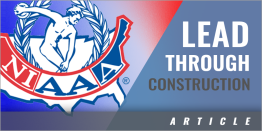|
By: Susan Robbins, CMAA - Gray New Gloucester High School I recently became the advisor of our school’s GSTA (Gay, Straight, Transgender Alliance). I attended a workshop sponsored by GLSEN of Southern Maine and the Maine Human Rights Commission. The day was very emotional although inspiring for me. I heard stories from students who were gay and transgender who struggle enough to be themselves, but on top of that they continue to be harassed in school for being who they are. I was both disheartened but motivated to help this group of students, I asked myself what can I do to help this student population feel safer in school? As Athletic Directors, we likely have all had some experience with a transgendered student-athlete and this issue focused mainly on which bathroom they can use. I feel as though this issue has been taboo because it is an uncomfortable topic for some because of their own personal bias and beliefs about this group in society. What I realized about myself is that even as a grown lesbian with a family who has faced adversity over time, I did not know enough about transgendered people. What does it mean to be transgendered? We must endeavor to create a safe space for our LGBTQ population in schools and on the playing fields. In order to do this, we must first understand the language and then incorporate best practices to accomplish the ultimate goal of a positive learning environment for all students. Sharing of educational information on the basic concepts and terms related to the LGBTQ community is essential. Let’s start with the Personal gender pronouns (PGP’s). Using people's personal gender pronouns is one of the most basic ways to show your respect for LGBTQ students and their gender identity. Personal Gender pronouns: Referring to people with the wrong pronouns can make them feel disrespected, invalidated, dismissed, or alienated – even further marginalizing a group already at risk. You should not assume what people’s PGPs are just by looking at them. If you make a mistake, own it right away by correcting yourself and accept others’ correcting you with grace. Understanding Identities is also very important. The continuum/spectrum of Sex, Gender and Sexuality must be understood.
We must familiarize ourselves with the statistics related to LGBTQ students. School and home aren’t always safe spaces for LGBTQ students. Most students hear anti-LGBTQ language on a regular basis. 8-10 students in Maine are harassed because of their sexual orientation or perceived sexual orientation and gender identity and expression. 40% of homeless youth in Maine are LGBTQ. What can we do? The research says the LGBTQ students with supportive school communities:
Do these statistics sound familiar? Yes, because many of these very statistics are the same for student-athletes who participate in our athletic programs! We must understand the climate that LGBTQ student’s experience. Learning cannot happen where students do not feel safe and valued. Any comments or behaviors that questions or disparage other’s physical or mental ability. Ethnicity. Race, religion, sexual orientation, or gender identity cannot be allowed. What are some “best practices” for creating safe and welcoming school communities?
The U.S. Department of Education makes it clear that students are protected from discrimination under Title IX. Title IX is a federal civil rights law that prohibits discrimination on the basis of sex in federally funded education programs and activities. Specifically, recent guidance states that Title IX’s sex discrimination prohibition extends to claims of discrimination based on gender identity or failure to conform to stereotypical notions of masculinity or femininity. In general, an educational institution should accept a student’s assertion of their gender identity when there is consistent and uniform assertion of the gender identity, or any other evidence that the student’s gender identity is sincerely held as part of their core identity. If the educational institution has a credible, objective reason to believe that a student’s gender identity is being asserted for an improper purpose, it may request additional evidence supporting the student’s stated gender identity. Whenever educational or extra-curricular opportunities offered by a covered educational institution are offered separately to students based on sex and/or gender, students shall be allowed to participate in accordance with their gender identity. At this point in time most States have policies around transgender student athletes and their participation in sports. Please take the time to become familiar with those policies as it relates to your own school. All school communities have LGBTQ students, staff and community members. It is our responsibility as educational administrators to do our very best to create a safe space for our LGBTQ students. Respectfully Submitted: Susan L. Robbins, CMAA
Resources: GLSEN - The Gay, Lesbian & Straight Education Network strives to assure that each member of every school community is valued and respected regardless of sexual orientation or gender identity/expression. www.glsen.org/chapters/southern-maine GLAD - Through strategic litigation, public policy advocacy, and education, Gay & Lesbian Advocates and Defenders works in New England and Nationally to create a just society free of discrimination based on gender identity and expression, HIV status, and sexual orientation. www.glad.org Out Right L-A (Lewiston-Auburn) - Creating safe spaces for LGBTQ youth. www.outrightla.org Portland Out Right – (Portland) A queer and trans movement fighting oppression through tenderness. www.portlandoutright.org Out Maine – (Rockland) OUT Maine is a non-profit advocacy organization dedicated to the support & empowerment of LGBTQ young people in mid-coast Maine. www.outmaine.org New Beginnings – (Lewiston) Serving Runaway and Homeless youth and their families. www.newbeginmaine.org Gender Spectrum - Creating gender sensitive and inclusive environments for all children and teens. EQME – Equality Maine works to secure full equality for lesbian, gay, bisexual, and transgender people in Maine through political action, community organizing, education, and collaboration. www.equalitymaine.org MaineTransNet – Maine Transgender Network provides support, education, resources for the transgender community in Maine. www.mainetransnet.org PFLAG - PFLAG Portland, Maine offers compassionate peer support to the parents, families and friends of, and including, LGBTQ individuals through group discussion, education, advocacy and creating connections to community resources. TYEF – Trans Youth Equality Foundation shares information about the unique needs of the transgender community, partnering with families, educators and service providers to help foster a healthy, caring and safe environment for all transgender children. www.transyouthequality.org ACLU – American Civil Liberties Union of Maine is the state's guardian of liberty. We are active in the courts, the legislature and the public sphere to defend the Constitution and the Bill of Rights for all Mainers. www.aclumaine.org |
